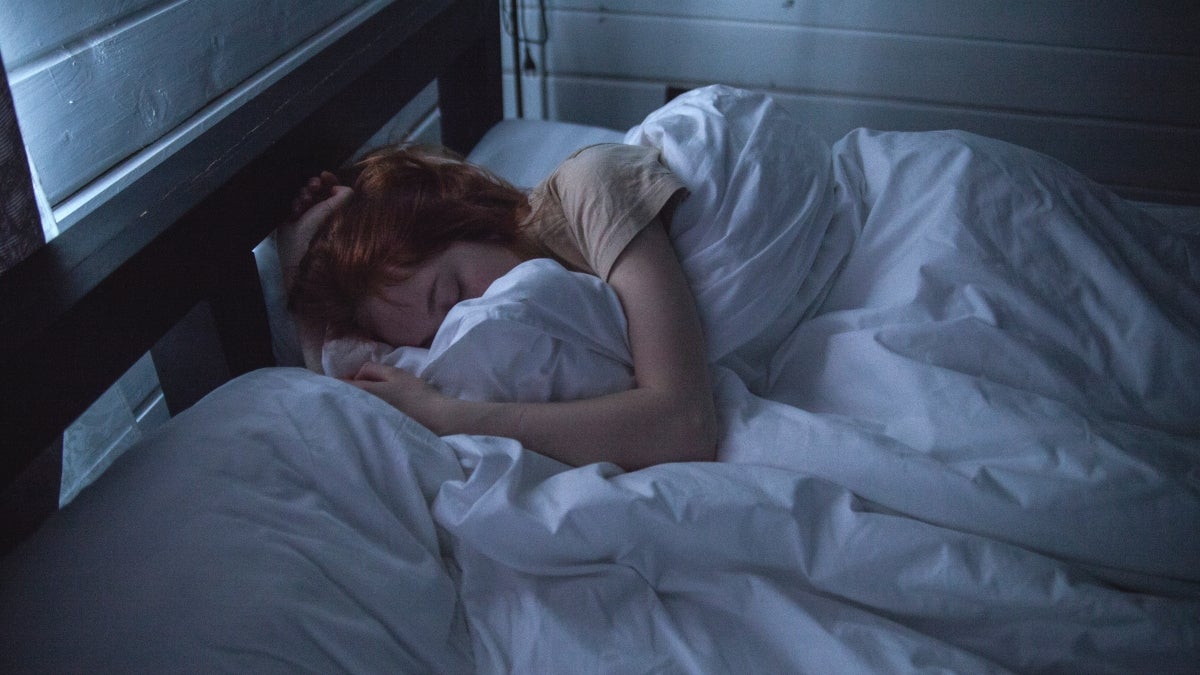ASU study: Living in impoverished neighborhoods in adolescence to early adulthood can affect sleep

Historically, studies have found that poorer neighborhoods are less conducive to a good night’s rest: They’re noisier, full of bright lights and more likely to have air pollution. They also have less space to exercise, fewer options for healthy foods, longer commute times and feel less safe overall, which can indirectly affect sleep.
Assistant Professor Connor Sheehan of Arizona State University's T. Denny Sanford School of Social and Family Dynamics set out with fellow investigators, including ASU researcher Stephen Kulis, to find if living in a poorer neighborhood for a long time — specifically during the vulnerable stage of young adulthood — leads to worse sleep overall. They also wanted to find if the effects differ by race or ethnicity.
The study, published in Health & Place, reported that exposure to neighborhood poverty from adolescence to early adulthood indeed predicted getting less sleep.
Though there were disparities across the board, the effects weren’t equal across all races and ethnic groups. Despite Black and Hispanic people being more likely to have worse sleep duration patterns overall, of the three groups — Black adults, Hispanic adults and white adults — only white participants had significantly less sleep when exposed to poorer neighborhoods from teenage years to early adulthood, a result that raised questions.
Sampling a well-known study for an important health predictor
To reach these findings, the researchers evaluated data from the National Longitudinal Study of Adolescent to Adult Health, a national five-wave study that has tracked the health and geographic locations of residence of over 20,000 participants from 1994 to 2018.
Along with analyzing self-reported sleep durations, they also looked at data on the neighborhood environments that people lived in from adolescence to early adulthood, a vulnerable time of life when many seek to establish themselves.
It’s also a time when racial and ethnic disparities begin to increase in areas of health, including sleep duration.
“While racial/ethnic disparities in sleep duration emerge as early as infancy, recent research has found emerging adulthood to be a period where (the trajectory of) sleep duration disparities further expand,” the study says.
These disparities have real-world consequences on health outcomes across society, the researchers say. Those who consistently sleep too much or too little have a higher risk of social, mental and physical problems that can affect all aspects of life. This makes it deeply important to understand when and how factors like neighborhood environment influence sleep.
Explaining the unequal effects
The data showed that living in low-income neighborhoods during young adulthood mostly affected white participants, despite Black and Hispanic people being more likely to have worse sleep duration patterns overall.
After reviewing related literature, the researchers proposed a few potential explanations for this disparity, one being that many white adults may have fewer coping mechanisms, having been historically less exposed to poverty than minority racial groups. Prior studies have shown that over many years of exposure to systemic racism, racial/ethnic minorities have developed strong social support networks and other ways to adapt. Without the same historical exposure, many white adults may not have had the chance to develop the same support systems.
Future research, however, is necessary to further understand the differences in this critical measurement of health.
Sleep disparities: An ongoing discussion
Though Sheehan and the contributing researchers did find that exposure to neighborhood poverty from teenage years to adulthood was worse for the sleep of white adults, they also found there were serious disparities in sleep at pretty much every level of neighborhood poverty exposure. This implies that, while neighborhood poverty may be worse for the sleep of white adults, other factors such as systemic racism are still incredibly important in shaping the sleep patterns of Americans, the researchers say.
"I think it is important to acknowledge that there are substantial racial/ethnic disparities in access to quality sleep at every life course stage, and these disparities have profound implications for the creation of health disparities and the reinforcement of social inequality more broadly,” Sheehan says.
This work was supported by the National Institutes of Health/National Institute on Minority Health and Health Disparities (award 2U54MD002316). Top photo courtesy pexels.com.
More Health and medicine

What makes human culture unique?
Why is human culture — the shared body of knowledge passed down across generations — so much more powerful than animal cultures?“What’s special about our species?” is a question scientists have…

ASU honors students work on HPV research as part of Barrett College's largest-ever group thesis
Not every undergraduate student comes across the opportunity to do research as part of a team. Even fewer have had the chance to join a team of 86 students doing multidisciplinary research with real-…

College of Health Solutions alumnus named Military Medic of the Year
By Keri Hensley and Kimberly LinnJonathan Lu has looked out for the health of his fellow military service members his whole career, starting with his role as a combat medic in the U.S. Army.Driven by…